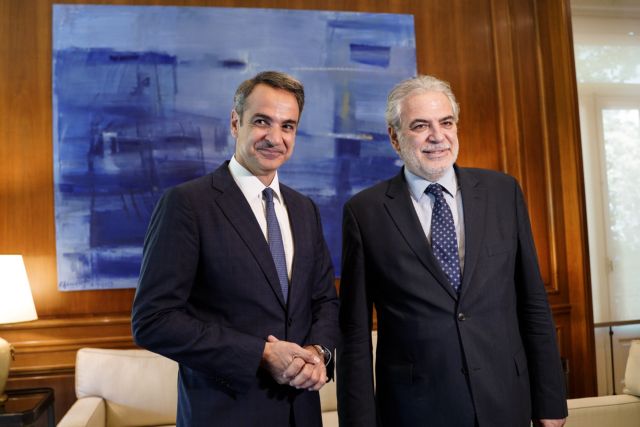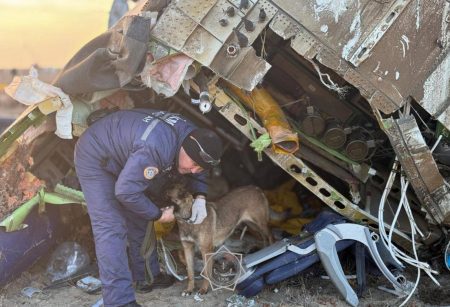By Angelos Athanasopoulos
The incoming minister for Climate Crisis and Civil Protection, Christos Stylianides, is a dentist by training, yet he is by all accounts essentially a “political animal”.
That is the common conviction of both his friends and opponents, as Cyprus’s former European Commissioner has a passion for whatever he takes up.
It is precisely that passion, combined with the experience and knowledge gained during his tenure as Commissioner for Humanitarian Aid and Crisis Management (2014-2019) – where he developed close ties with one of the towering divs of recent European politics, former European Commission President Jean-Claude Juncker – that Prime Minister Kyriakos Mitsotakis sought to exploit when he tapped the 63-year-old Stylianides to head the newly-established ministry.
In accepting the invitation of PM Kyriakos Mitsotakis, in part because of their ties of friendship and mutual respect, he became the third Cypriot (after the former deputy education minister Loukis Akritas in the 1960s and more recently the late alternate foreign minister Yannos Kranidiotis) to serve as minister in a Greek government.
With a “dowry” from the EU Pandemic Recovery Fund
Though much has been written in recent days about how the minister was chosen, it seems that as is often the case that the simplest answer is right.
The idea of approaching Stylianides was the prime minister’s, as he found in him a man who is suitable for pursuing his objectives and has the necessary technocratic experience. The two kept in touch even after Stylianides left the Commission in 2019.
Meanwhile, his appointment would help transcend the negative impressions created by former defence minister Evangelos Apostolakis’ last-minute decision to turn down an appointment to the same ministry. The common conviction is that the affair cost the government politically.
Moreover, Stylianides has at his disposal substantial funding from the EU Pandemic Recovery Fund, with which he can create a permanent and functional crisis management and civil protection mechanism
Ebola and rescEU
Stylianides, who was initially elected as a European Parliament member in 2014 after having served as Cyprus’s government spokesman during the dramatic period when Cyprus was forced to accept a bailout memorandum, assumed the portfolio of Humanitarian Aid and Crisis Management Commissioner on 1 November of the same year.
He had previously made a good showing in a series of European Parliament hearings, and with that background he was, on 24 October, 2014, appointed to serve as special coordinator for handling the Ebola virus, which had been isolated in Guinea, Sierra Leone, and Libya, was entirely unknown, was transmitted extremely rapidly, and was essentially a public health time-bomb.
His close associates noted that Stylianides decided, despite recommendations that he avoid many contacts, to travel on 13 November to the three African countries to evaluate the situation on the ground.
How he persuaded European leaders
The threat of the virus expanding beyond the three countries was apparent. Sources in the know regarding the affair told To Vima that what was essentially needed was to persuade the governments to cooperate – to change certain practices and improve hygiene conditions.
The efforts were successful and Stylianides persuaded the leaders of all three countries to meet in Brussels in 2015. Ebola was finally checked in Western Africa.
Although 12,000 people died of Ebola, it was possible to contain the epidemic and keep it from becoming a pandemic.
What distinguished Stylianides most, however, was the creation of rescEU. When people died during the major 2017 fires in Portugal, the lack of a European Civil Protection Mechanism was glaringly obvious.
Indicatively, Jean-Claude Juncker at the time stated that, “The Commission is not here to offer condolences.”
It became clear that there was little room for the flexibility needed to coordinate national competencies in civil protection, due to the reluctance of certain Northern European countries, which saw no reason to fund a new EU structure.
Credibility and success
With the unswerving support of Juncker, Stylianides launched a campaign in the capitals of all EU member-states in order to secure unanimous support for the project and to persuade the Northern countries to contribute to funding it.
In Germany, he had to visit all 16 of the country’s laenders, which have enhanced competency in the area of civil protection. The key word that facilitated the effort to persuade, according to sources in Brussels, was the “credibility” of the Commissioner.
The relevant legislation was passed almost in record time in March, 2019.
It is noteworthy that the first time that rescEU forces were deployed was in Greece, in August of 2019.
Naturally, the huge mobilisation of forces from all over Europe to assist in fighting the disastrous Greek wildfires that destroyed much of the environment vindicated Stylianides’ effort to bolster the EU civil protection mechanism.
The Cyprus problem, presidential ambitions and devotion
Stylianides passion for politics, especially in defending his positions on solving the Cyprus problem, has cost him at times.
Having served at the side of the late president of Cyprus Glafkos Clerides, whom he views as his political mentor, Stylianides as regards the Cyprus problem belongs to the school of “assertive realism”.
Following the last round of substantial Cyprus talks that led to an impasse in Crans-Montana, Switzerland in 2017, Stylianides clashed with Cyprus’ President Nicos Anastasiades.
It is almost certain that the dispute was the reason that his term on the Commission was not renewed by the government of Cyprus, even though he had proven himself eminently worthy when he held the Humanitarian Aid and Crisis Management portfolio.
That fueled rumours in Cyprus regarding what Stylianides intentions were as regards the 2023 presidential election, which sparked unspoken consternation in Anastasiades’ inner circle.
Stylianides associates, however, have made it clear that he is completed dedicated to his ministerial duties, and that neither he nor Mitsotakis have the slightest intention to create domestic political problems in Cyprus.



